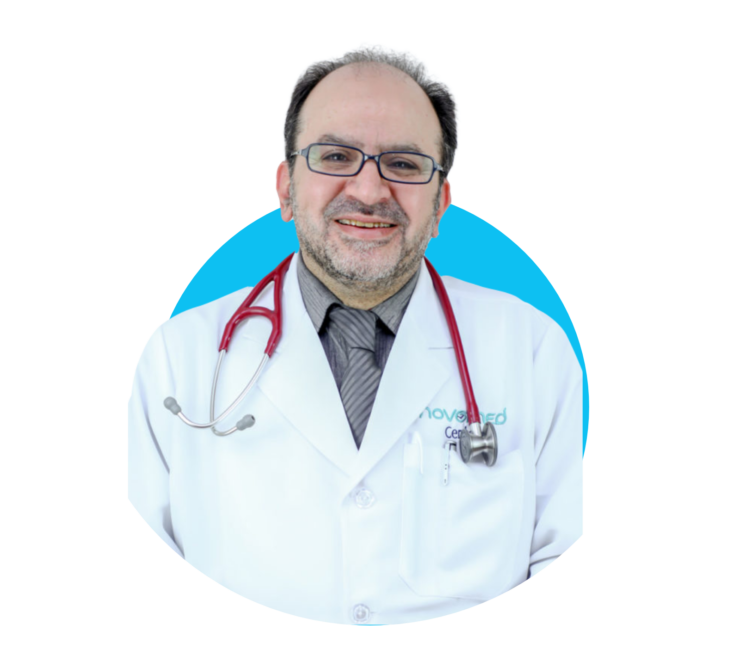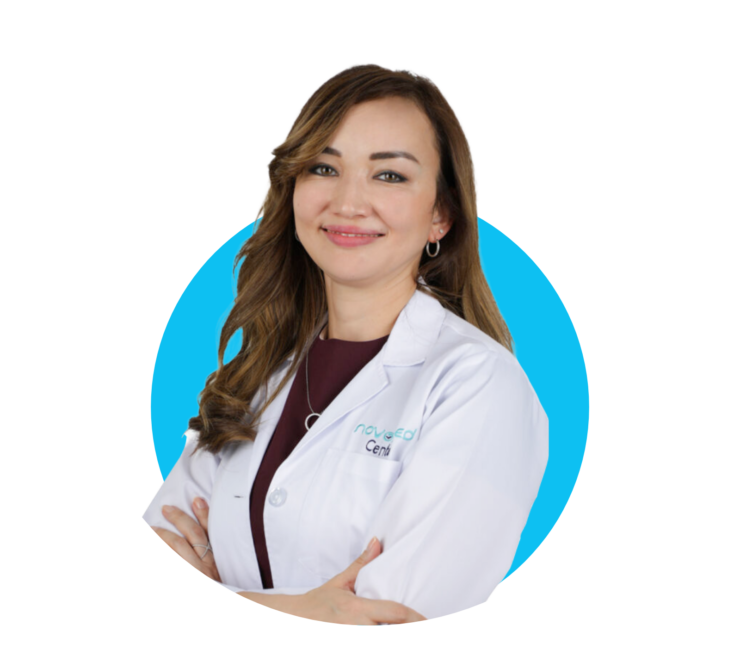Lipid Disorders Treatment in Dubai, Abu Dhabi and Al Ain
Overview
Lipids are vital fats that circulate in the bloodstream; They produce hormones and other compounds necessary for the body’s functions. The body stores excess fat in blood vessels and organs, where it can restrict blood flow and damage organs, frequently resulting in severe illnesses.
The main fats (lipids) in the blood are:
- Cholesterol
- Triglycerides
Cholesterol: is a necessary component of cell membranes, brain and nerve cells, and bile, which aids in the absorption of fats and fat-soluble vitamins by the body. Cholesterol is used by the body to produce vitamin D and various hormones, including estrogen, testosterone, and cortisol. It is classified into two types:
- Bad cholesterol – Low-density lipoproteins (LDLs): play a part in building up a plaque in the arteries, a condition known as “atherosclerosis,” associated with an increased risk of heart attack and stroke.
- Good cholesterol – High-density lipoproteins (HDLs): aid in removing cholesterol from the blood, thereby stopping fatty accumulation and plaque formation.
Triglycerides: fat-soluble compounds that be broken down and used to provide energy for the body’s metabolic functions, including growth. Triglycerides are derived from smaller fat molecules termed fatty acids in the gut and liver.
What are the causes of lipid disorders?
Lipid diseases can be caused by genetic factors, lifestyle choices, or both. When a lipid issue develops due to another medical condition, it is referred to as a “secondary lipid disorder.” Among these conditions are the following:
- Diabetes
- Hypothyroidism
- Kidney failure
- Obstructive liver disease
- Cushing’s syndrome
- PCOS (polycystic ovary syndrome)
Lifestyle habits that increase your risks of developing lipid disorders may include:
- Inactivity – Lack of exercise can increase LDL cholesterol levels. Studies have indicated that regular physical activity improves the normal HDL cholesterol levels
- Smoking – Smoking can cause plaque to build up in your arteries due to a spike in bad cholesterol levels.
- Genetics -You are at a greater risk of developing high cholesterol if it is present in your family.
- Medications – Some prescriptions, such as diuretics, can cause your cholesterol levels to rise.
What are the symptoms of lipid disorders?
It is critical to note that, in most cases, a person with a lipid issue will show no symptoms until they develop a severe health condition, such as a stroke or heart attack. However, the following symptoms have been reported on occasion in patients with extremely high lipid levels:
- Yellowish fatty lumps on the skin or yellow wrinkles caused by a buildup of fatty plaques around tendons and joints.
- White arcs (arcus senilis) surround the eye’s cornea, occasionally appearing in younger patients with excessive cholesterol.
- Raised, yellow lumps at the inner corners of the eyes.
How are lipid disorders diagnosed?
Your doctor will perform a weight check to evaluate lipid levels since being overweight or obese is related to high lipids, cardiovascular disease, and diabetes.
Your doctor may also request a blood test known as a lipid profile, or lipid panel, to determine your cholesterol levels. This test determines your total cholesterol, LDL cholesterol, HDL cholesterol, triglyceride levels, and other health indicators. Your doctor will likely instruct you to abstain from eating and drinking anything other than water for at least 8 to 12 hours before this test.
The lipid profile indicates the amount of cholesterol in milligrams per deciliter (mg/dL). Total cholesterol levels should not exceed 200 mg/dL.
If your physician suspects a heart attack or stroke risk, they may conduct advanced lipid testing to examine your blood for LDL and HDL levels and the number, or density, of these lipoproteins and their sizes. According to some experts, this advanced lipoprotein evaluation is a more accurate predictor of cardiovascular disease than the standard lipid profile.
How are lipid disorders treated?
Untreated lipid diseases are especially harmful because they can cause progressive tightening of the arteries (atherosclerosis) and raise the risk of heart attack and stroke. While supplements such as omega-3 fatty acids and positive lifestyle modifications may be sufficient to help some patients manage or cure their lipid disorders, many may need medication to treat their disease. The following medications are frequently prescribed:
- Statins – Statins are a type of medication that aid in managing cholesterol by inhibiting its production in the liver. Additionally, they assist by collecting excess cholesterol that has accumulated in the arteries.
- Cholesterol Absorption Inhibitors – These medications contribute to maintaining a healthy cholesterol level in the body by blocking dietary cholesterol absorption.
- Bile Acid Sequestrants — Bile resins are cholesterol-containing substances that can be reabsorbed in the small intestine.
- Fibrates – These medications can help in reducing abnormal triglyceride levels.
Book your appointment at Novomed today!
Novomed endocrinologists have great experience in treating lipid disorders and provide comprehensive treatment plans to prevent the detrimental effects these disorders can have on health. To book an appointment with one of our expert endocrinologists in Dubai or Al Ain, call us toll-free at 800 (NOVO) 6686 or click the live chat icon at the bottom of the screen.


